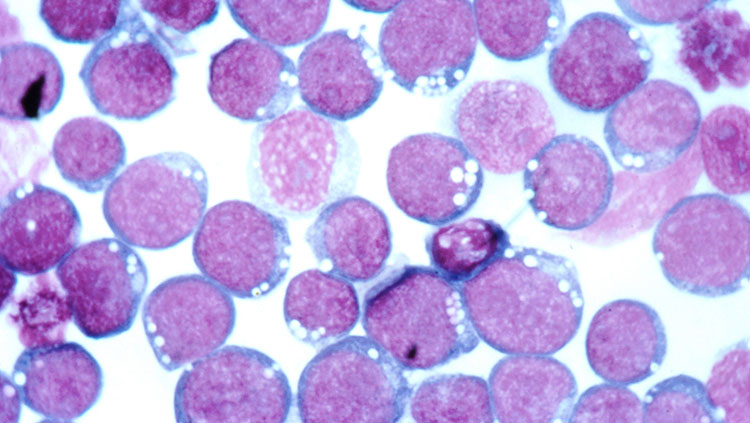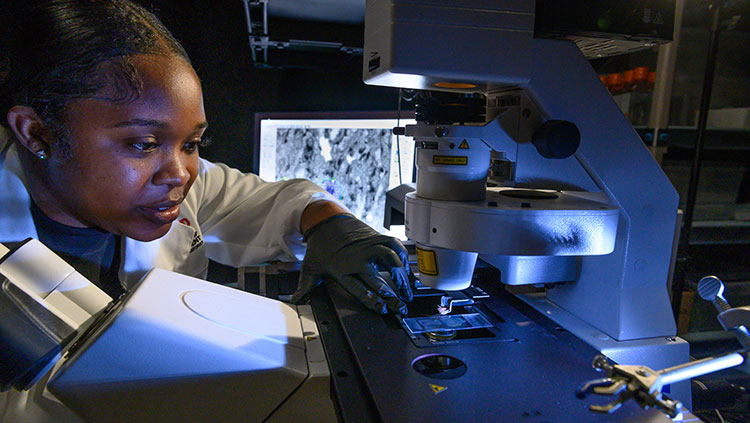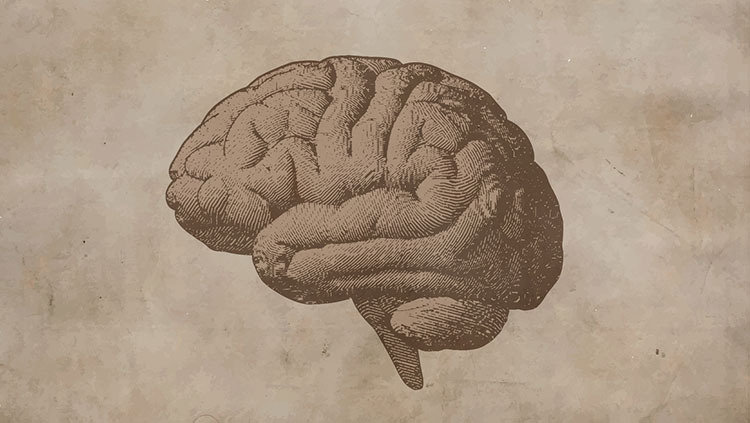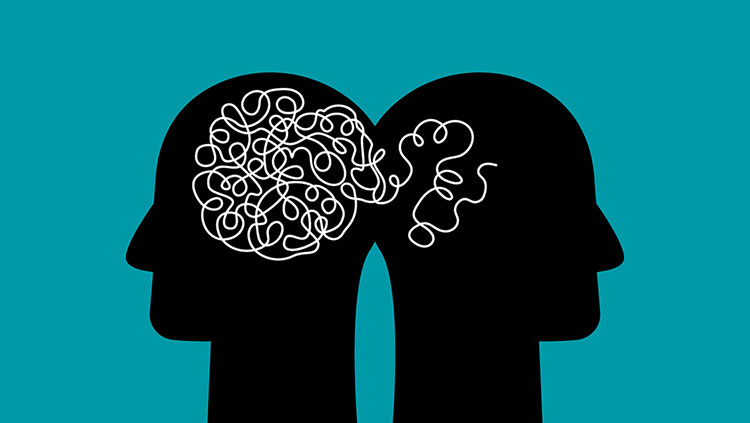ICYMI: Epstein-Barr Virus May Trigger Multiple Sclerosis
- Published18 Feb 2022
- Author Alexis Wnuk
- Source BrainFacts/SfN

Infection with the virus that causes mononucleosis may trigger multiple sclerosis (MS), researchers reported January 13 in Science. The team analyzed health records and blood samples for 10 million active-duty U.S. military personnel which were stored in the Department of Defense Repository — the world’s largest repository of its kind, with more than 62 million samples. They identified 955 people who developed multiple sclerosis during the 20-year period between 1993 and 2013. By comparing blood samples collected before disease onset to samples from 1,566 military personnel who didn’t develop MS, the researchers found infection with the Epstein-Barr virus increased the risk of developing MS 32-fold. Infection with other viruses didn’t increase the risk of MS. In addition, blood levels of neurofilament light chain, or NfL — fragments of damaged neurons that wash into the bloodstream and increase during the years preceding an MS diagnosis — increased only after an Epstein-Barr infection. The researchers conclude infection with Epstein-Barr virus triggered the neurodegenerative process in these cases.
Big picture: In MS, the immune system attacks the myelin sheath — the fatty substance that insulates neurons and speeds the conduction of electrical signals. Many scientists have wondered whether infection could prompt this about-face from the immune system. Though this study supports this theory, it leaves some big questions unanswered, such as why only a tiny minority of people infected with the Epstein-Barr virus go on to develop MS.
Read more: Strong new evidence suggests a virus triggers multiple sclerosis. STAT
More Top Stories
- Five people in the U.S. died of rabies in 2021, the highest number in a decade. The New York Times
- COVID-19 is more likely to cause loss of smell in people with a certain genetic variant. Science News
- Four factors may increase the likelihood of developing long COVID. The New York Times
- New research suggests dolphins evolved clitorises for pleasure. New Scientist
- What your retina says about your true biological age. LiveScience
- Two opioid drugs are more lethal than fentanyl and are responsible for a growing number of fatal overdoses. AP
- Exercise bolters synapses even in people showing signs of dementia. CNN
- Studying the brains of people with COVID-19 could unlock clues to Alzheimer’s disease. National Geographic
- Unfamiliar voices elicit more brain activity than familiar voices during sleep. New Scientist
- A cluster of brain cells synchronizes crying and breathing in baby mice. NPR
CONTENT PROVIDED BY
BrainFacts/SfN



















